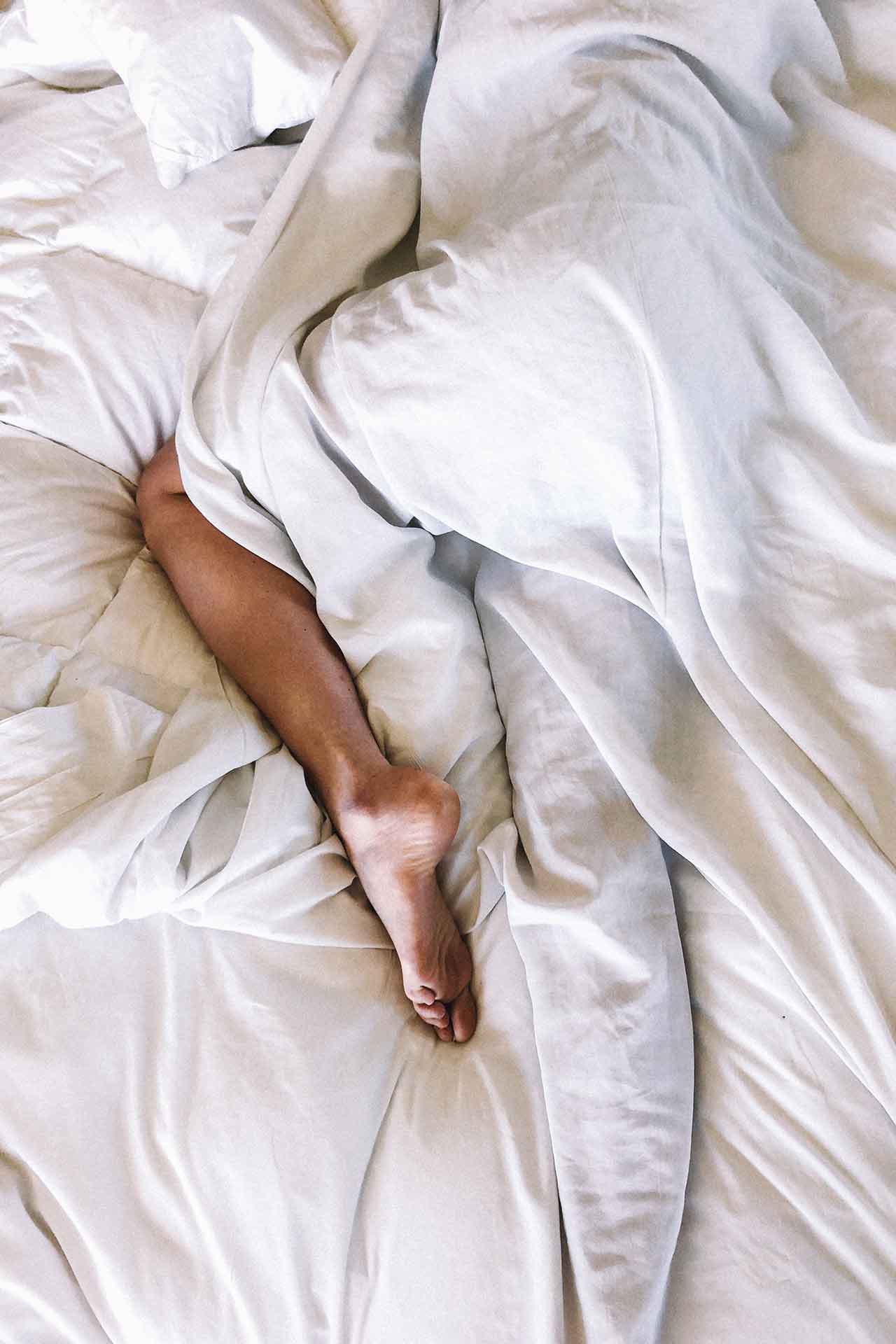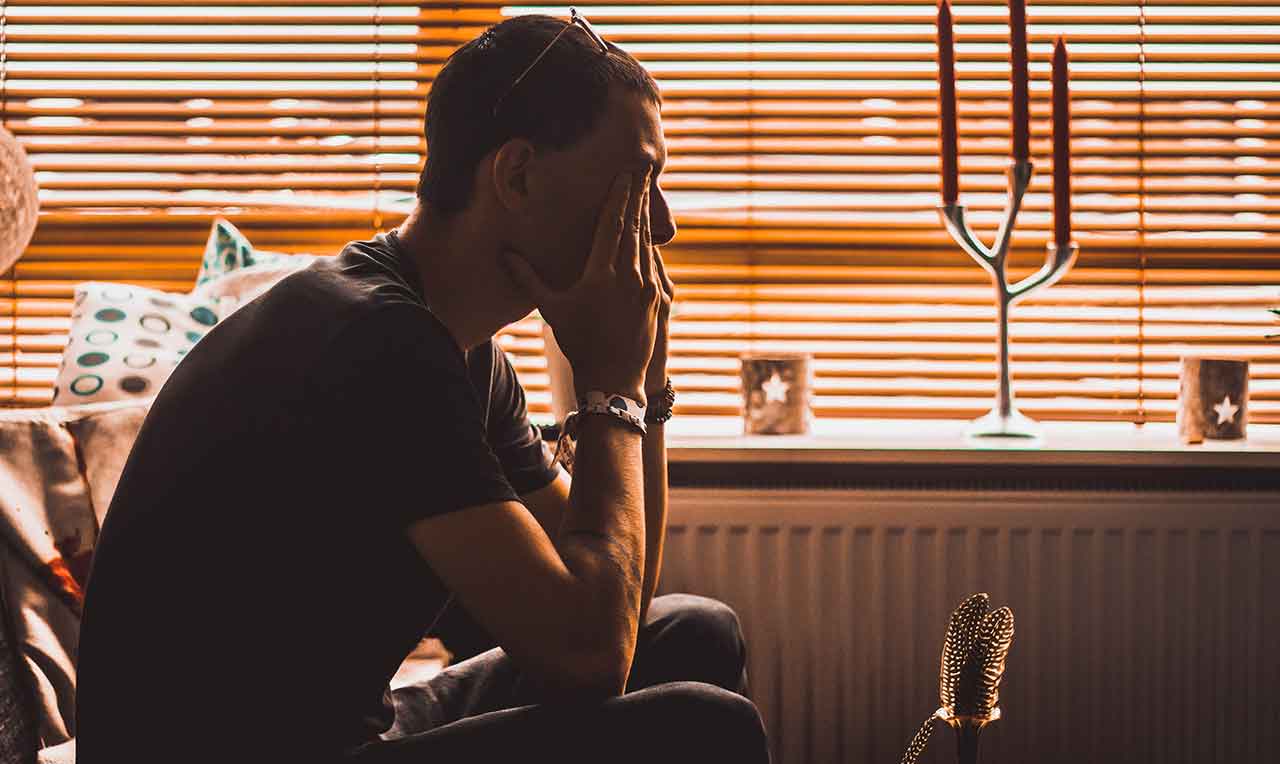We all sometimes feel anxious as a normal response to certain unpleasant events that occur in our lives. Most people only experience it briefly. This could result from a novel or strange circumstance. Everyone experiences fleeting anxiety, which is sometimes beneficial and doesn’t interfere with daily life.
High functioning anxiety, on the other hand, or other anxiety disorders (AD), are more severe and can prevent someone from living everyday healthy life. Complex anxiety disorders can include other mental or behavioral issues. It’s critical to get treatment or therapy if your anxiety is more than just sporadic and is interfering with your life.
There are various treatment options and coping skills for anxiety. One of the best treatment options for anxiety disorders is medication. Prescription drugs are only to be taken when a doctor recommends and are only meant to treat mental health disorders. However, as off-label use, several over-the-counter medications might also aid with anxiety.
Given its sedative properties, the brand-name, over-the-counter antihistamine Benadryl may effectively manage anxiety symptoms. (1)
In more detail, let us examine Benadryl, its makeup, uses, adverse effects, and efficacy for treating anxiety.
What is Benadryl?
Benadryl is a well-known brand of over-the-counter antihistamines. Antihistamines are a group of drugs used to treat allergies and cold and flu symptoms. (2) The irritating symptoms associated with allergies are typically caused by histamine, a kind of protein present in plasma. By preventing the function of this molecule, antihistamines help lessen allergic responses and the signs and symptoms of respiratory infections.
The medication’s active ingredient, diphenhydramine, may make you feel tired, but it also contains drowsiness-inducing qualities. Overall anxiety might manifest as nervousness, insomnia, and general uneasiness. Many individuals with these symptoms may benefit from diphenhydramine’s sedative qualities. Diphenhydramine has sedative properties, making it helpful in treating insomnia for highly brief periods—ideally, only one night. However, the Food and Drug Administration has not approved Benadryl’s usage as an anxiety medication.
How does Benadryl work?
Benadryl is not an anti-anxiety drug. It is an OTC antihistamine. Its main objective is to temporarily relieve the signs and symptoms of seasonal allergies and upper respiratory infections.
It functions by preventing histamines from entering the central nervous system and other bodily regions. Your body’s natural chemical messengers known as histamines, which aid in daily function, are also involved in your immune response. Histamines promote the inflammatory reaction that causes allergy symptoms when a foreign substance accesses your system and is recognized as a risk.
Benadryl functions as a CNS depressant and suppresses histamine impulses. This lessens the symptoms of allergies. Additionally, it could result in other feelings, including sleepiness and sedation. For this reason, some individuals might think that Benadryl might lessen anxiety. (3)
There are several suggestions about how Benadryl could impact anxiety, but they are yet to be supported by a scientific study. One of the most well-liked theories is that Benadryl’s propensity for the body’s H1 receptors may help with anxiety symptoms. The H1 receptor directly influences the body’s inflammatory response. Although it has not been shown in human trials, initial experimental studies on animals suggest it may also affect anxiety symptoms.
Anxiety symptoms were seen in mice when the H1 receptor was activated, according to 2007 research. Other receptor sites’ activation did not produce these symptoms. (4)
These results are consistent with other studies conducted on animals in 1996, 1998, and 1999, which showed that activating or inactivating the H1 receptor might alter anxiety symptoms. (5, 6, 7) But the study is outdated, and this only applies to animals. Newer research using living individuals is essential.
Benadryl and Sleep
One of the critical signs of anxiety is insomnia and other sleep-related issues. (8) You might turn to Benadryl for anxiety relief because it can sedate you, making it easier for you to get some sleep. But it does not lead to a reduction in anxiety.

When you take Benadryl, you can feel sleepy or relaxed, but the anxiety and its physical symptoms might still be there. Nevertheless, it might provide you with short-term relief. Benadryl may inadvertently alleviate symptoms if sleep disruptions cause your anxiety and if it makes it easier for you to fall asleep. (9)
However, using antihistamines for sleep regulation over an extended period may have negative side effects. In conclusion, it is not advised to use Benadryl as a long-term sleep aid.
How long does Benadryl take to work?
Benadryl works quite immediately once it is taken. By 20 to 30 minutes, the results should become apparent. Two hours after your dose, you should start to feel its full implications. For around four to six hours, the medication should continue to function. You can take it 20 minutes before bed to promote sleep. Unless your doctor instructs you to use Benadryl for an extended time, you should only take medication for a brief period.
Should you take Benadryl for anxiety?
Every prescription requires a delicate balance between the drug’s beneficial and harmful effects. Antihistamine use can be helpful in the treatment of anxiety, but there are certain risks to be aware of. (10)
Over-the-counter antihistamines typically cost less than prescription anxiety medications and are more readily available. Antihistamines often have a lower risk of dependency and addiction than other sedatives. When combined with therapy like CBT, antihistamines can be beneficial for brief periods. It could be better than not seeking any treatment for anxiety. (11)
But using antihistamines outside of their intended uses has risks. It is well known that antihistamines make people sleepy during the day. People who run heavy equipment or otherwise need to stay vigilant may have a problem with this. These medications are likewise ineffective for treating severe anxiety and are not meant to be used as a long-term solution for any anxiety problem.
What is the recommended dosage of Benadryl?
Your dose of Benadryl will depend on a number of variables. These factors include your age, the severity of your condition, and the form of the medication you are taking. Benadryl is available as a liquid, chewable, quick-dissolving strips, pill, or capsule. Taking the lowest dosage of Benadryl for the briefest period is crucial to reduce adverse effects and achieve the intended result.
The recommended dosage is 25 to 50 mg every 4 to 6 hours for adults and children 12 years of age and older and 12.5 to 25 mg every 4–6 hours for kids aged 6 to 11 years old for swallowing. You should never hesitate to consult your child’s doctor for youngsters under six. For adults and children 2 years of age and older, the afflicted region can be administered Benadryl topical 3 to 4 times as a cream, gel, or spray.
However, Benadryl is not authorized to treat anxiety in individuals of any age. You can decide whether your kid requires off-label Benadryl usage with the assistance of a pediatrician. Severe reactions might occur if the medicine is administered without a healthcare provider’s advice.

Benefits of Benadryl
The use of Benadryl to treat anxiety may have some benefits. The key advantages that you could experience as a result of taking Benadryl are listed below.
Easy accessibility
People who use Benadryl for anxiety consider its over-the-counter accessibility to be positive. For a reasonable price and without a prescription, Benadryl is available over-the-counter in nearby stores. Many Benadryl retailers are open around-the-clock, making it a convenient alternative anytime someone needs last-resort or unanticipated relief.
Safety
Benadryl is typically seen to be safe when used as directed and in acute situations. Its demonstrated history of safety and reduced risk compared to many other prescription treatments is a key factor in the FDA’s decision to authorize it as an over-the-counter drug.
Quick activation
Although Benadryl does not take action right away, it does so reasonably quickly in comparison to other drugs. Most people who take Benadryl claim that after 10 to 30 minutes of oral administration, its constituents start to have a pronounced sedative effect. Some people even assert that they experience diphenhydramine’s calming effects less than 10 minutes after taking it, which is faster than most others. Compared to other drugs, this one’s quick beginning of effect may be beneficial.
Adjunct Effects
Several studies suggest that benzodiazepines like lorazepam can be safely taken together with diphenhydramine, the active component in Benadryl. In studies, lorazepam and diphenhydramine were prescribed together as a single medication called Somnium to treat comorbid insomnia and anxiety. Compared to lorazepam taken alone, Somnium appears to be more effective in treating anxiety and sleeplessness. (12)
Tolerability
Another advantage of utilizing Benadryl as an anxiety medication is that it is very well tolerated when taken by the medication’s usual dosage recommendations. You should not have trouble tolerating Benadryl as long as you do not take a dose that is too high (i.e., more than 50 mg) and are in excellent condition. Despite the possibility of specific adverse effects, including sedation and tiredness, most consumers would not view them to be severe or intolerable.
Is Benadryl safe to use for anxiety?
There are no safety studies to support the use of Benadryl as an anxiety therapy since it is not licensed. The short-term use of Benadryl could be a recommended element of your treatment strategy, but only a medical practitioner can make that decision. A healthcare practitioner can only ascertain its possible advantages in a specific situation.
Moreover, the drug’s manufacturer could not compensate you if you encounter a severe negative effect when using it outside the recommended dosage range. There is no way to know all the possible side effects of using Benadryl to treat anxiety without extensive study or clinical trials that have been used for a substantial period.
There is no evidence to support the use of Benadryl to treat anxiety attacks or to demonstrate that your symptoms will get better. Your doctor can recommend a tested and secure drug designed exclusively for anxiety attacks if you suffer from them.
In addition, tolerance and dependency may develop with repeated unsupervised use of Benadryl. You might need to take increasing amounts of the drug to have the same results. In some circumstances, taking a lot of Benadryl can be lethal.
Can Benadryl exacerbate anxiety?
Paradoxical CNS stimulation is one of the potential adverse effects of Benadryl. (13) You have the opposite medication reaction to what is intended. Most people who use Benadryl suffer tiredness and sleepiness as side effects. Benadryl might sometimes have the opposite effect on some individuals.
You can feel excited and agitated rather than tired, which might exacerbate anxiety symptoms. Nobody can be predicted to respond paradoxically, but your anxiety can get worse in this exceptional scenario.

Side effects of Benadryl
While some people assert that using Benadryl for anxiety has therapeutic benefits, there are some significant risks to consider before evaluating its possible anxiolytic effects. The following are possible Benadryl adverse effects:
Cognitive impairment
Benadryl’s antihistaminic characteristics are known to impair cognitive performance. The cognitive functions of concentration, critical reasoning, emotion regulation, memory, organizing, decision making, and judgment may all be affected by taking Benadryl. (14)
Addiction
Although most people would not describe Benadryl as an addictive drug, continuous usage might cause psychological dependency in some individuals. The brain becomes used to the constant presence of diphenhydramine when Benadryl is used frequently to treat anxiety symptoms. (15)
Depression
It is possible that taking Benadryl can make you depressed and will worsen any existing depressive symptoms, leading to high-functioning depression. A small percentage of diphenhydramine consumers may experience depressed thoughts, erratic changes in mood, and severe cases, suicidal thoughts.
Motor skills impairment
Benadryl is known to reduce CNS activity, which causes users to have motor skill impairment. Anyone who uses a car or heavy equipment or participates in sporting activities should be cautious about the impairment. Operators of machines or vehicles face a much higher risk of getting hurt, dying, or damaging their equipment when their motor skills are slightly compromised. (16)
Long-term effects
Although Benadryl is generally considered safe when given abruptly on an as-needed approach for allergies, those who use it frequently over a long period may have harmful long-term consequences. Cognitive impairment, motor dysfunction, and neurodegeneration symptoms might all be long-term repercussions. (17)
Other adverse effects include irregular breathing, impaired vision, changes in body temperature, constipation, dilated pupils, vertigo, dry mouth, elevated heart rate, restlessness, sexual dysfunction, and urinary problems.

Interaction of Benadryl with other drugs
Antihistamines may potentially enhance the likelihood of a harmful interaction due to their easy accessibility. This covers both over-the-counter and other prescribed drugs. Even with vitamins and dietary supplements, adverse interactions can occur. Following are some of the common drug interactions:
- Alcohol and Benadryl together can have serious side effects, including excessive sleepiness and impaired motor coordination and attentiveness. (18)
- Benadryl and benzodiazepines may interact, leading to significant adverse effects such as drowsiness, disorientation, and difficulty focusing. In older individuals, reasoning, judgment, and motor coordination may be compromised. (19)
- Benadryl may interact with common antidepressants, including paroxetine, Zoloft, Prozac, and others, and intensify its side effects like tiredness, dizziness, and concentration difficulties. (20)
- Combining Zyrtec, another antihistamine, with Benadryl may increase the likelihood of experiencing several adverse effects, including drowsiness, dry mouth, exhaustion, and headaches.
- Several antipsychotic drugs may interact with Benadryl and result in bladder issues, fever, dry mouth, blurred vision, disorientation, dizziness, or a slowed heartbeat.
Since this is not a comprehensive list and Benadryl may negatively interact with other drugs, it is advisable to speak with your doctor or pharmacist before taking it.
Precautions
If taking Benadryl makes you sleepy or impairs your reasoning, do not drive or handle machinery. Carefully get up when getting out of a seated or lying down posture. Benadryl may lower blood pressure, resulting in symptoms like lightheadedness and raising your risk of falling.
Children under twelve should not take Benadryl as a relaxant at night. It should never be administered to newborns, especially those born prematurely. Children who use too much Benadryl may experience sleepiness, excitement, hallucinations, seizures, or even death. Moreover, as there are insufficient well-controlled trials in pregnant women, consult your doctor before using Benadryl. It is a good idea to avoid using it when nursing.
Get immediate medical assistance if you have any symptoms, such as agitation, hallucinations, a fast heartbeat, dizziness, flushing, muscle tremor, or anything else that is intolerable. Check with your doctor or pharmacist before taking any other medications while taking Benadryl.
Conclusion
Benadryl may seem like a quick fix if you are hesitant to take prescription anxiety medicine. Antihistamine Benadryl may make you feel tired and sedated and may aid in your ability to fall asleep. Limited scientific data in humans support the use of Benadryl for anxiety, but positive results have been seen in animal trials.
If you are using Benadryl to treat your anxiety symptoms, you should be aware that while it may lessen anxiety symptoms in some people, it is not without its drawbacks. Benadryl is not recommended for long-term usage. Although it could cause brief drowsiness, frequent use has no lasting effects.
It is OK to take it seldom and at the recommended dosage, but if you want to cure severe anxiety, you might need to seek a better alternative.

